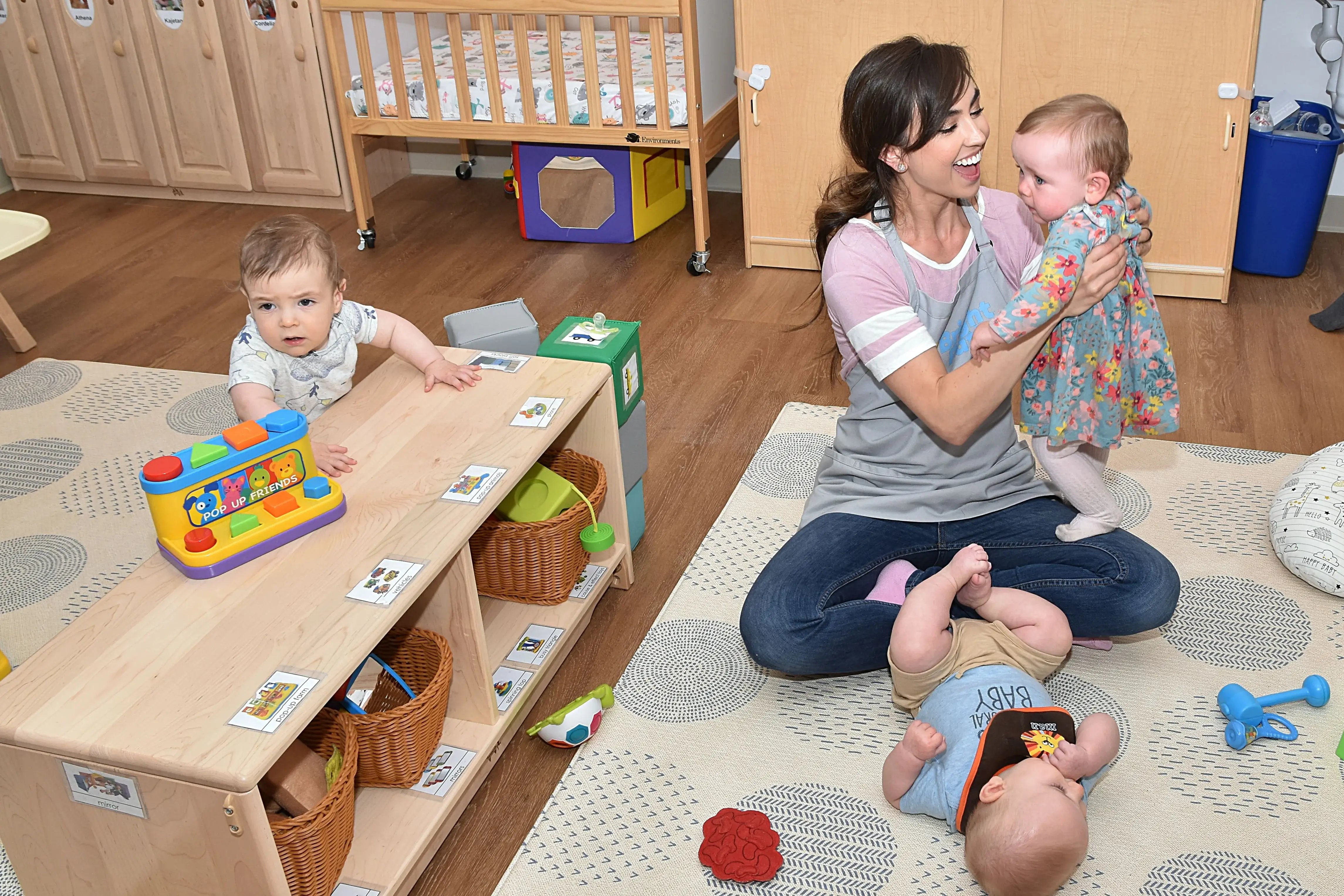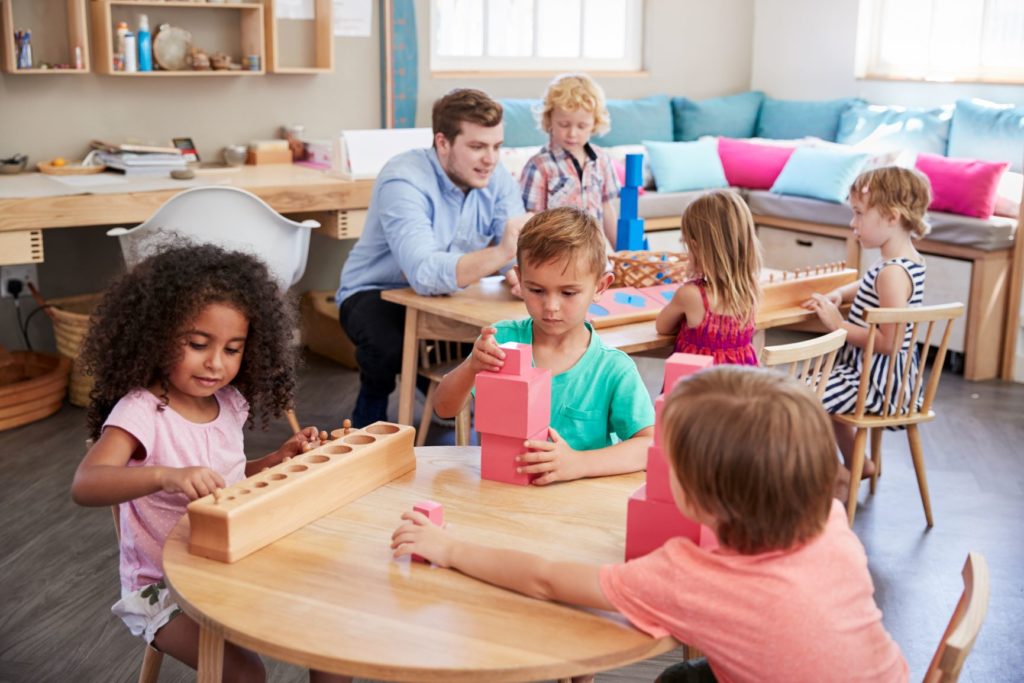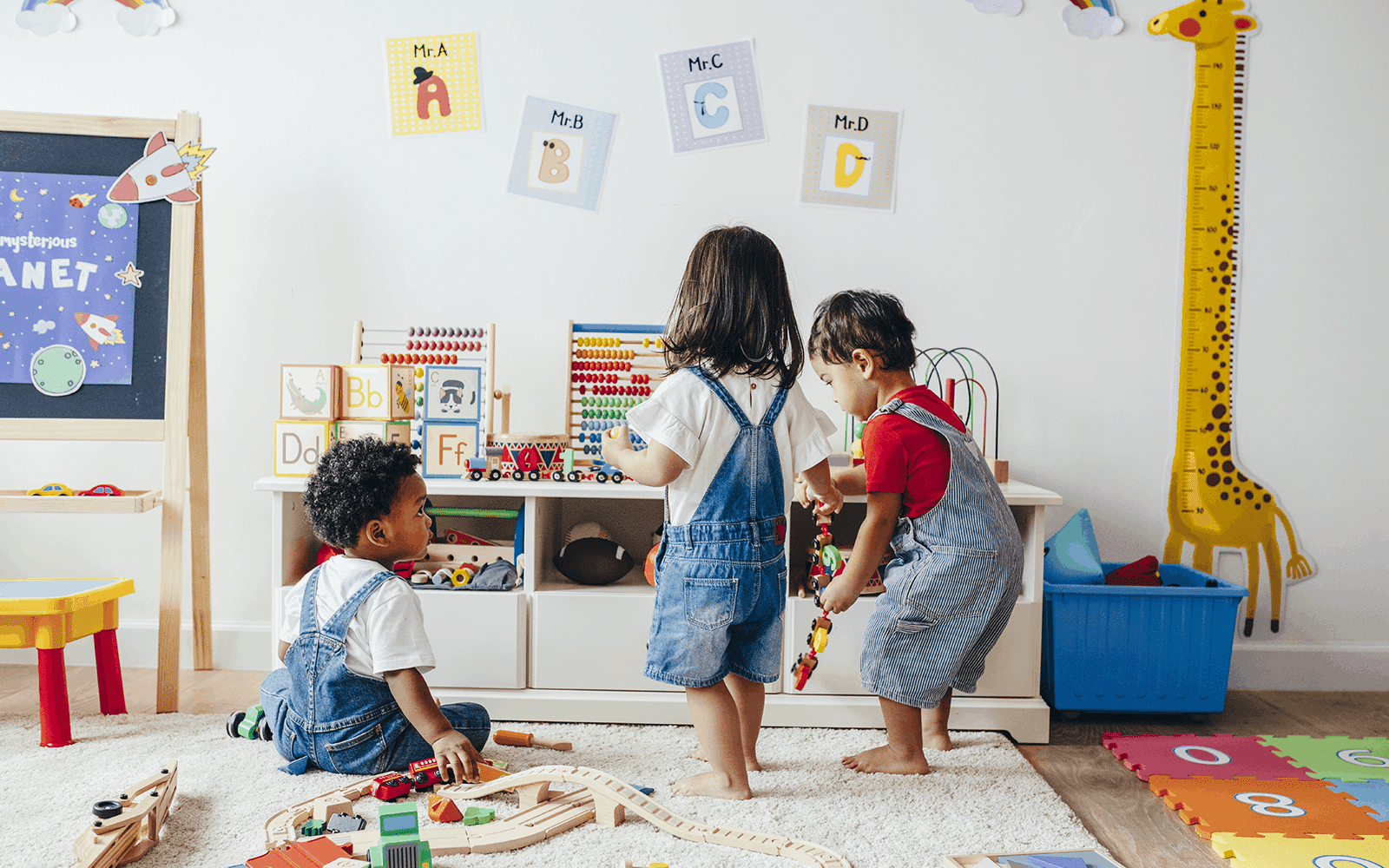Top Advantages Of Choosing Professional And Safe Childcare Near Me
The Role of Day Care in Fostering Social Abilities and Early Discovering
Day care serves as a substantial environment for young kids, assisting in essential social interactions that promote very early understanding. In this structured setting, kids involve with peers and caretakers, developing necessary interaction and cooperation skills. As they navigate play and different tasks, they find out to deal with disputes and develop psychological knowledge. Understanding the nuances of these interactions exposes the profound effect childcare has on a child's development, shaping their future connections and academic readiness. What particular skills do kids obtain in this setup?
The Relevance of Social Communication in Childcare
While many parents acknowledge the relevance of very early childhood education and learning, the function of social communication in childcare is typically underestimated. Day care settings give kids with important possibilities to engage with peers, promoting necessary social skills. During these developmental years, youngsters find out to browse different social dynamics, such as sharing, teamwork, and dispute resolution. Communicating with diverse age and personalities boosts their capacity to adapt to different settings and establish empathy towards others.

Structure Interaction Abilities With Play
Play offers as an effective tool for youngsters to construct crucial communication skills in childcare setups. Via numerous play tasks, children engage in conversations, express their thoughts, and find out to pay attention to others. Role-playing video games, for example, urge them to make use of language in various contexts, advertising vocabulary growth and understanding of social signs.

In addition, storytelling during play allows youngsters to share concepts and emotions, assisting them create narrative skills and self-confidence in their spoken expressions. In general, play not just functions as a satisfying pastime but likewise as an essential platform for establishing the interaction skills required for effective social communications in later life.
Urging Collaboration and Team Effort
Participation and synergy are important skills that kids can grow in childcare settings. Via various team activities, such as constructing tasks or joint video games, children learn to share responsibilities and work toward common goals. These interactions foster an understanding of the significance of listening to others, working out functions, and jeopardizing when required.
In day care settings, caregivers frequently create opportunities for children to participate in synergy by urging them to take part in team tasks. This not just helps children develop social bonds yet additionally grows a feeling of belonging and neighborhood.
As they navigate these cooperative experiences, youngsters obtain valuable understandings right into the dynamics of dealing with peers. They learn to value varied point of views and acknowledge that each member adds distinctively to the group effort. Inevitably, these very early lessons in participation and team effort lay the foundation for healthier relationships and effective collaboration in future social and academic setups.
Structured Knowing Activities and Cognitive Development
Structured understanding tasks play an essential duty in promoting cognitive growth in children (Daycare North York). These tasks, which include challenges, narration, and hands-on experiments, stimulate important thinking and analytical abilities. In a daycare setting, organized learning motivates youngsters to engage with their peers, improving their capacity to process information and recognize various ideas
With guided play and interactive tasks, kids create foundational abilities such as numeracy and literacy. For circumstances, tasks focused around numbers can assist kids comprehend mathematical ideas, while narration boosts language acquisition and understanding. Furthermore, structured discovering permits instructors to assess developmental progress and tailor activities to individual knowing requirements.

Integrating a diverse variety of structured activities not just advertises cognitive development however likewise prepares children for future academic success. By giving a well balanced setting that promotes exploration and inquiry, childcare programs play an essential duty fit the cognitive capabilities of young learners.
Fostering Psychological Knowledge and Confidence
Emotional knowledge and confidence are vital components of a child's growth, matching the cognitive skills fostered via structured discovering activities. In daycare setups, kids are supplied with possibilities to reveal their emotions and take part in social interactions, which are crucial for constructing emotional awareness. Via visit this website assisted play and view website group tasks, children find out to determine their sensations, acknowledge those of others, and create compassion.
Communication with peers and caregivers helps to grow self-esteem and strength. Positive reinforcement and encouragement from adults encourage kids to take risks and face difficulties, fostering a sense of success. As they navigate social characteristics, children build confidence in their capabilities to communicate, work together, and settle disputes - Childcare Near Me. This nurturing atmosphere permits for the gradual advancement of psychological knowledge, which is crucial for future interpersonal partnerships and general wellness. As an outcome, daycare plays a considerable duty in fostering both emotional intelligence and self-confidence in little ones
Frequently Asked Questions
Exactly How Can Moms And Dads Pick the Right Daycare for Their Child?
Parents must take into consideration variables such as location, staff certifications, security requirements, curriculum, and examines from various other moms and dads when choosing the ideal childcare for their youngster, guaranteeing it straightens with their youngster's developing demands and family values.
What Age Is Best for Beginning Childcare?

How Does Childcare Impact Kid's Behavior in your home?
Childcare typically favorably influences youngsters's behavior in your home by boosting social skills, advertising independence, and encouraging psychological law (Childcare Near Me). Because of this, youngsters may display better communication and teamwork, bring about more harmonious family members dynamics
Are There Any Type Of Disadvantages to Daycare Participation?
Yes, there are disadvantages to daycare participation, consisting of potential separation anxiousness, exposure to diseases, and irregular caregiving. These variables can impact a kid's psychological health and adjustment at click for more info home, influencing total family dynamics.
Exactly How Can Parents Assistance Social Abilities Found Out at Daycare?
Parents can support social skills learned at daycare by helping with playdates, motivating participating tasks, modeling favorable communications, reviewing sensations, and enhancing sharing and interaction in the house, thereby boosting their youngster's social growth and self-confidence.
Childcare offers as a significant environment for young children, facilitating vital social communications that advertise very early discovering. Day care settings provide youngsters with invaluable opportunities to involve with peers, cultivating essential social skills. Play serves as a powerful tool for kids to develop critical communication abilities in childcare settings. In day care settings, youngsters are given with chances to reveal their emotions and involve in social interactions, which are crucial for building psychological awareness. Daycare usually favorably influences youngsters's habits at home by enhancing social abilities, promoting independence, and motivating emotional law.